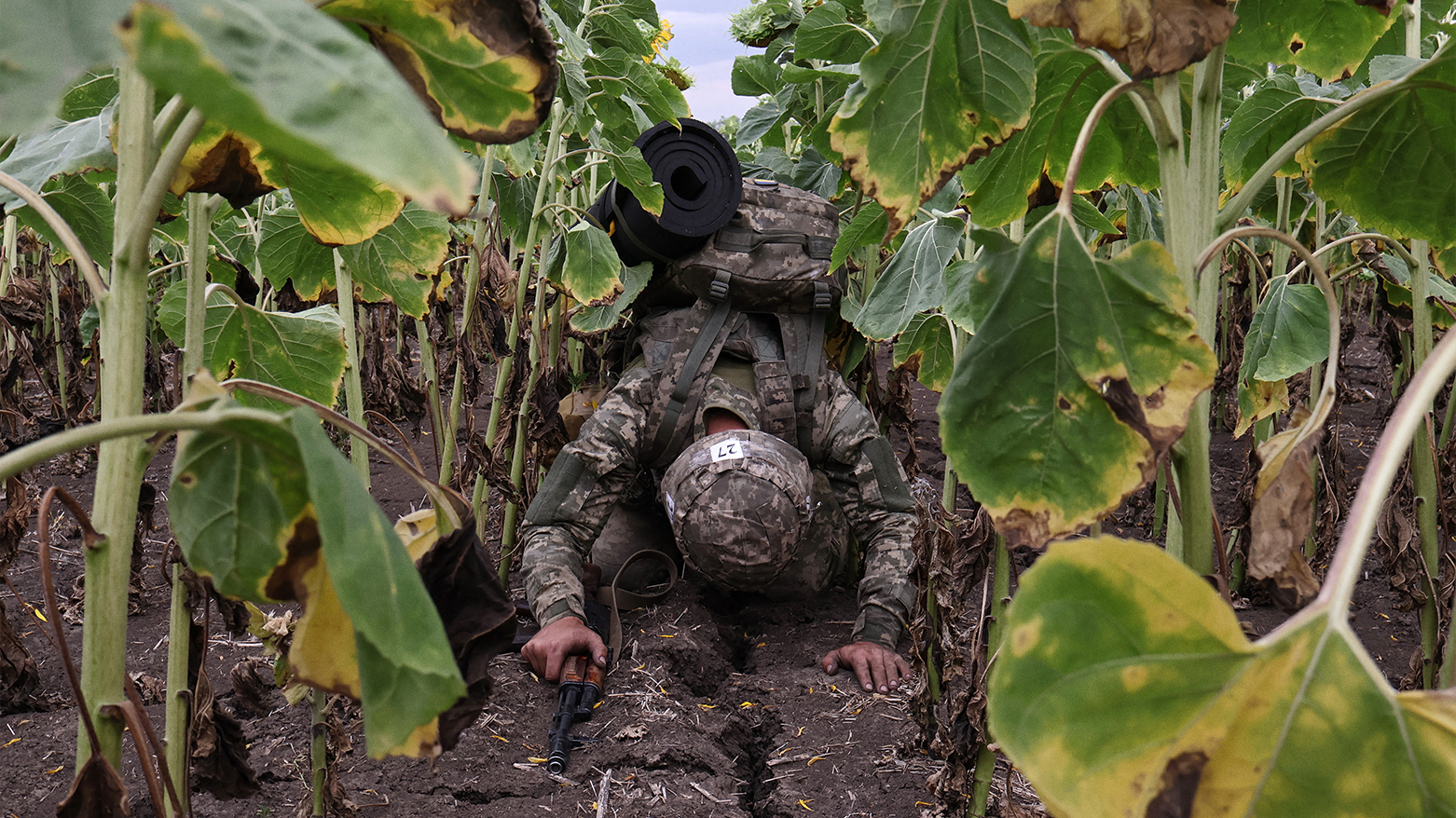Kyiv Signals Land Concession Ahead of US-Russia Summit
A Telegraph report indicates Ukraine is prepared to cede Russian-held territory ahead of a Trump-Putin summit. European leaders are backing Kyiv to ensure any peace settlement is not imposed on Ukraine and respects its sovereignty, with the current front line as the starting point.

ERBIL (Kurdistan24) — In a significant shift ahead of a high-stakes peace summit between US President Donald Trump and Russian President Vladimir Putin, Ukraine has signaled a potential willingness to cede territory already held by Russian forces as part of a European-backed peace agreement, according to a report from the UK-based newspaper, The Telegraph.
This softened negotiating position emerges amid frantic diplomacy as Kyiv and its European allies work to present a united front before the critical talks.
According to the report, Ukrainian President Volodymyr Zelensky has communicated to European leaders that while they must reject any settlement proposed by Donald Trump that involves Ukraine surrendering further territory, Russia could be permitted to retain some of the land it has already taken.
Such an agreement would effectively freeze the current front line, handing Moscow de facto control over the territory it occupies in Luhansk, Donetsk, Zaporizhzhia, Kherson, and Crimea.
This development comes as Ukraine and its European partners express growing concern that President Trump and President Putin could negotiate an end to the war without Kyiv's full participation.
A Western official, characterizing the weekend's diplomatic efforts, told The Telegraph that "the plan can only be related to the current positions held by the militaries." The urgency is fueled by the upcoming meeting between Trump and Putin in Alaska on Friday.
Poland’s Prime Minister, Donald Tusk, articulated the apprehension on Monday, stating, "I have many fears and a lot of hope," while adding that US officials had pledged to consult with European leaders ahead of the summit.
European capitals have reportedly chosen to back Kyiv’s vision for any potential territorial swaps in an attempt to persuade Trump of the diplomatic weight behind a single "Ukraine plus Europe" stance, which rejects concessions involving Ukrainian-held land.
A joint declaration by leaders from the European Commission, France, Italy, the UK, Poland, and Finland stated that "the current line of contact should be the starting point of negotiations."
As The Telegraph notes, European leaders are expected to hold talks with Trump on Wednesday to present their case.
For his part, President Trump has indicated he will seek a deal.
On Monday, he stated he would try to get some territory back for Ukraine during his meeting with Putin. "There would be some swapping, some changes to land," Trump said, adding, "Russia has occupied a big portion of Ukraine. We’re going to try to get some of that territory back for Ukraine." He described the upcoming summit as a "feel-out meeting," expressing confidence in his ability to quickly assess the potential for an agreement.
However, the path to any settlement is fraught with challenges. According to The Telegraph, European diplomats report no notable change in Putin's overarching war aims, which include toppling Ukraine's government.
The Institute for the Study of War, a Washington-based think tank, reported that Russia is still aiming for the "full capitulation" of Kyiv. President Zelensky himself said on Monday evening there were no signs Russia was preparing to end the war, citing intelligence that Moscow was moving troops for "new offensive operations."
Ukraine has also made clear that any peace deal is contingent on robust security guarantees, including weapons deliveries and a clear path to NATO membership. Furthermore, President Zelensky faces domestic hurdles, as ceding territory would require a nationwide referendum under the Ukrainian constitution.
The Telegraph reported Trump’s criticism of this constraint, quoting him as saying, “I mean, he’s got approval to go into war and kill everybody, but he needs approval to do a land swap?”
NATO Secretary General Mark Rutte described the situation as a challenge of "how to deal with the factual situation that the Russians are holding, at this moment, Ukrainian territory." He stressed to CBS that while there might be a factual situation of occupation, it could never be accepted in a legal, or de jure, sense.
Supporting this view, a phone call between UK's Sir Keir Starmer and Canada's Prime Minister Mark Carney resulted in a joint sentiment welcoming peace efforts but warning that a deal must be "built with Ukraine – not imposed upon it," as a Downing Street spokesman relayed to The Telegraph.